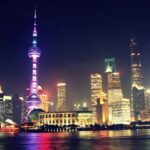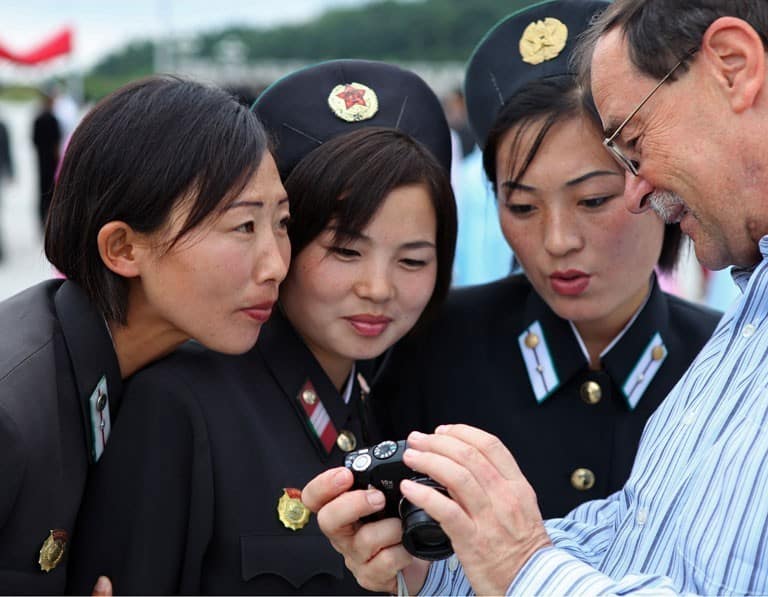How Long Can North Korea Keep Globalization at Bay?
North Korea has been busy. In January alone, the Democratic People’s Republic of Korea carried out a missile test, and possibly assassinated Kim Jong-nam. This transgressive behavior raises many questions about the nature of international diplomacy today. Advances in information technology have changed the geopolitical climate, but North Korea has attempted to remain isolated in an increasingly connected world.
So how has the world responded? The Trump administration has remained cautiously tight-lipped. China has taken an aggressive approach, imposing a retaliatory ban on all coal imports from North Korea. South Korea described the assassination as a North Korean “terrorist act”.
Several editorials from prominent news publications advocate for the invasion of North Korea. In September of last year, then-presidential-candidate Trump even stated that China should invade the country. Other pundits argue that the country should be bombarded with nuclear weapons. This sort of language certainly mirrors the anger that North Korean propaganda conveys about America, but it should be alarming to most readers.
In the broader scheme of things, North Korea’s recent actions are unsurprising — considering the government’s pattern of adventurism over the past few decades. There are differences, though, in how the world reacts to these transgressions today. New technological innovations, such as smartphones and live streaming video, have led to greater global interconnectedness. One side effect of this development is that political demagogues and dictators are more frequently being exposed and held accountable.
However, North Korea has not been radically reformed by these advances. They remain corrupt, reclusive, and dangerous. There is a clear divide between the desires of the militant government and the needs of its people. What makes this government immune to these changes?
Putting the Nation Before Its People
The government’s jingoistic approach to diplomacy has had many negative effects on its citizens. With each action that alienates North Korea from the rest of the world, the country weakens the strength of its relationships with allies. The recent sanctions from China demonstrate this. This has a dramatic impact on the economy of the nation, leading to higher debt and poorer civilians. Most denizens live in poverty, earning less than $30 USD a month. Households suffer frequent electric outages and enjoy few luxuries.
Communicating any form of dissent can lead to immediate and harsh consequences. In many instances, offenders and their families are sent to prison camps. Sometimes they are killed in public executions.
North Korean citizens are intentionally deprived of the opportunity to learn of, or communicate their own, dissenting views — and the Kim dynasty shows no sign of loosening its grip. Internet access is out of the question for many families. The vast majority of internet users in the country use Kwangmyong, a network accessed through a dial-up connection, consisting of curated content by the government. Most of this content consists of state propaganda.
Kim Jong-un’s government recognizes that technological advancement empower people. As a result, the government wields control over all channels of communication. More well-to-do civilians with smartphones and computers do not have proper access to the internet either, and everything they do is monitored. This is why dissent struggles to spread in North Korea.
Damage Control
Conversely, the DPRK government has grown obsessed with managing their reputation online. In 2010, the first official government social media channels were created. Both a Facebook page and Youtube channel are used to upload thousands of videos promoting North Korea and denouncing its enemies.
Damage control could be a liability to other nations. Analysts fear that North Korea is becoming increasingly bold in regards to state-led hacking attempts. Considering the importance of cyber security in maintaining homeland security, this is a worrying possibility. While this may seem unlikely, consider that a North Korean hacker group was famously able to prevent the release of the film The Interview by Sony Pictures. According to an article in TIME, cybercrime from North Korea will likely increase going forward.
Knowing how easy it can be to share a photo or video, the government has strict policies in place for visitors. Tourists, for example, are always accompanied by guides. They are only permitted into specific areas — most often well-developed cities like Pyongyang. Filming is often not permitted, unless visitors use the footage for approved purposes, such as propagandistic music videos. Photographs or videos showing the true state of living conditions for average civilians are rare finds.
Visitors are advised to be wary. Breaching any rules can result in imprisonment, torture and death. Universities offering study abroad programs have also warned students about the dangers of being in the area. Arizona State University, which offers study abroad opportunities, has warned students about the dangers of studying in neighboring South Korea, due to the unpredictable nature of the DPRK.
The Black Market of Information
Fortunately, the government lacks the ability to stop all information from bleeding through the cracks. Despite efforts by the regime to absolutely control all information entering the country, an underground market thrives in North Korea. It is unique in that buyers are more interested in information than traditional contraband. If you know where to look, you can buy USB drives filled with international media, magazines, and cell phones stripped of surveillance software.
These items are necessary tools to facilitate and inform dissenting opinions. As international news makes its way into the nation through these illegal channels, the citizens of North Korea will steadily (though slowly) become empowered. Many defectors feel that a popular uprising is imminent. The DPRK government may be incapable of keeping globalization from affecting its people.
How long can North Korea continue to keep a veil around its citizens? How long will it threaten and endanger the international community? Unfortunately, the answers to these questions remain unknown. Since the early 1990s, pundits have predicted the collapse of North Korea. Regardless, its government has persisted. The Kim dynasty will continue to make headlines in this increasingly vitriolic political climate. Finding the correct answer lies not in cutting the Gordian knot, but in unraveling it, thread by thread.









